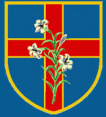Progression of Science
Working Scientifically at Aston St Mary’s Primary School
We ensure that the ‘Working Scientifically’ skills are built-on and developed throughout children’s school career so that they can use equipment, conduct experiments, build arguments and explain concepts confidently and continue to ask questions and be curious about their surroundings. Children will develop a broad range of skills for investigation – pattern seeking; identifying, classifying and grouping; comparative and fair testing (controlled investigations); and researching using secondary sources. and will regularly be given the opportunity to create their own scientific questions and to explore these using a ‘child led enquiry’ approach. Working Scientifically should not be taught as a separate strand but should be embedded throughout all topics of learning
KS1
During years 1 and 2, pupils should be taught to use the following practical scientific methods, processes and skills through the teaching of the programme of study content:
- asking simple questions and recognising that they can be answered in different ways
- observing closely, using simple equipment
- performing simple tests
- identifying and classifying
- using their observations and ideas to suggest answers to questions
- gathering and recording data to help in answering questions.
LKS2
During years 3 and 4, pupils should be taught to use the following practical scientific methods, processes and skills through the teaching of the programme of study content:
- asking relevant questions and using different types of scientific enquiries to answer them
- setting up simple practical enquiries, comparative and fair tests
- making systematic and careful observations and, where appropriate, taking accurate measurements using standard units, using a range of equipment, including thermometers and data loggers
- gathering, recording, classifying and presenting data in a variety of ways to help in answering questions
- recording findings using simple scientific language, drawings, labelled diagrams, keys, bar charts, and tables
- reporting on findings from enquiries, including oral and written explanations, displays or presentations of results and conclusions
- using results to draw simple conclusions, make predictions for new values, suggest improvements and raise further questions
- identifying differences, similarities or changes related to simple scientific ideas and processes
- using straightforward scientific evidence to answer questions or to support their findings
UKS2
During years 5 and 6, pupils should be taught to use the following practical scientific methods, processes and skills through the teaching of the programme of study content:
- planning different types of scientific enquiries to answer questions, including recognising and controlling variables where necessary
- measurements, using a range of scientific equipment, with increasing accuracy and precision, taking repeat readings when appropriate
- recording data and results of increasing complexity using scientific diagrams and labels, classification keys, tables, scatter graphs, bar and line graphs
- using test results to make predictions to set up further comparative and fair tests
- reporting and presenting findings from enquiries, including conclusions, causal relationships and explanations of and degree of trust in results, in oral and written forms such as displays and other presentations
- identifying scientific evidence that has been used to support or refute ideas or arguments.
Our mixed classes are split into individual year groups to teach discrete science lessons weekly, allowing for clear progression in knowledge, skills and curriculum coverage throughout the school. Science is taught, planned and arranged in topic units by the class teacher which is taught every week. KS1 – 1.5hours per week and KS2 – 2.0 hours per week.
To ensure a consistent approach to working scientifically across the school, we have developed a PPPOP approach (Plan, predict, prepare, observe and record and prove it) which children use from KS1 (firstly as POP) and is developed and built upon in more detail as children move up the school into KS2.
Example Progression of Science
[extlsc id=”18326″]

